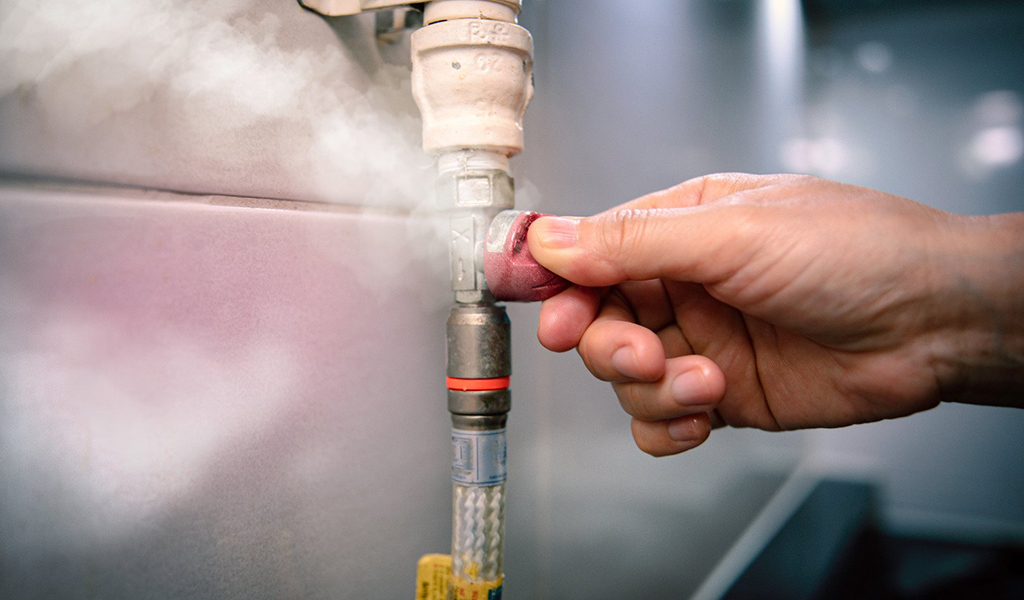What to Do If You Smell Gas at Your Property
Gas leaks can be a serious and potentially life-threatening issue. If you ever detect the unmistakable smell of gas in your property, it’s crucial to act swiftly and responsibly to ensure your safety and the safety of others. In this article, we will guide you through the steps to take if you find yourself in such a situation, including important considerations such as gas leak detection. Your safety is our top priority, so let’s dive into the essential information you need to know.
Understanding the Dangers of Gas Leaks
Gas leaks can occur due to various reasons, including damaged pipes, faulty appliances, or improper installations. Regardless of the cause, gas leaks pose significant risks. The primary danger is the potential for explosions and fires, which can result in severe injuries or even fatalities.
In addition to the immediate threat of explosions and fires, gas leaks can also have long-term health effects. Prolonged exposure to natural gas can lead to symptoms such as dizziness, nausea, headaches, and fatigue. Moreover, natural gas is highly flammable, making it a hazardous substance in both its gaseous and liquid forms.
Gas leaks can also result in environmental damage. When gas escapes into the atmosphere, it contributes to air pollution and greenhouse gas emissions, exacerbating climate change. Therefore, addressing gas leaks promptly is not only essential for personal safety but also for the well-being of our planet.
Furthermore, neglecting gas leaks can lead to financial consequences. Unattended leaks can cause extensive damage to your property, including corrosion of pipes and structural damage. Repairing such damage can be costly, which is why it’s crucial to detect and address gas leaks at the earliest possible stage.
Recognizing the Signs of a Gas Leak
Before you can take action, you must first be able to identify the signs of a gas leak. These are the most common indicators of gas leak:
- Smell: Natural gas is odorless, but a chemical called mercaptan is added to give it a distinctive rotten egg or sulfur-like smell.
- Hissing or whistling sounds: Large gas leaks in pipes or appliances may produce hissing or whistling noises, even if the appliance is turned off.
- Air bubbles in standing water: Natural gas leaks can also occur in underground piping outside the home. If you see bubbles in standing water, including puddles and mud, it may be a sign of natural gas dispersing through the soil and into the surrounding air.
- Dead houseplants: Gas leaks can kill vegetation and trees, so if you notice dead houseplants, it could be a sign of a gas leak.
- Physical symptoms: Exposure to natural gas can cause physical symptoms such as headaches, dizziness, fatigue, nausea, irregular breathing, and even flu-like symptoms.
If you suspect a gas leak, it’s important to take immediate action. Leave the area immediately and call 000 or your local gas company from a safe location. Do not use any electronic items in the house, and do not use a landline or cell phone while on the property. Only trained pipeline technicians with specialized equipment and knowledge are qualified to conduct repairs on natural gas pipelines, so do not attempt to repair, stop, or fix a pipeline leak or rupture yourself
Immediate Actions to Take
If you suspect a gas leak, it’s important to take immediate action. Here are the steps you should take:
- Do not turn on or off any appliances: Do not turn on or off any appliances or any equipment capable of creating a spark including light switches
- Shut Off the Gas Supply: If it is safe to do so and you can access the gas shutoff valve, turn it off. This will halt the gas flow and minimize the risk of further leakage.
- Ventilate: Open doors and windows to allow fresh air to flow through the premises. This will help disperse the gas and reduce its concentration.
- Do Not Use Mobile Phones: Using mobile phones or any other electronic devices in the vicinity of a gas leak can be dangerous, as they may produce sparks that could ignite the gas.
- Evacuate the Premises: If you smell gas indoors or in the vicinity of your home, evacuate the area immediately. Ensure everyone in your household, including pets, is safely evacuated.
- Call for help: Call 000 or your local gas company from a safe location. When you are in a safe area, report the leak by calling the Facilities Services emergency number or 000.
Remember to always prioritize your safety and the safety of others when dealing with a gas leak.
Professional Inspection and Repair
After taking immediate action, it’s essential to have a qualified professional inspect and repair the gas leak. Do not attempt to fix the issue yourself, as this can be extremely dangerous. A licensed technician with expertise in gas fitting will assess the source of the leak and ensure that your property is safe.
The professional will use specialized equipment to detect the precise location and extent of the gas leak. This may involve using gas detectors, thermal imaging, or pressure testing. Once the source is identified, the technician will take the necessary steps to repair the leak, which may include replacing damaged pipes, valves, or connectors.
It’s important to note that gas leaks can sometimes occur in hidden or hard-to-reach areas, such as within walls or underground. Professional technicians with experience in gas fitting have the expertise and equipment to address these challenges safely and effectively.
In conclusion, never underestimate the importance of professional inspection and repair when dealing with a gas leak. It is a task that should only be entrusted to trained and certified experts to ensure the safety of your property and those within it.




